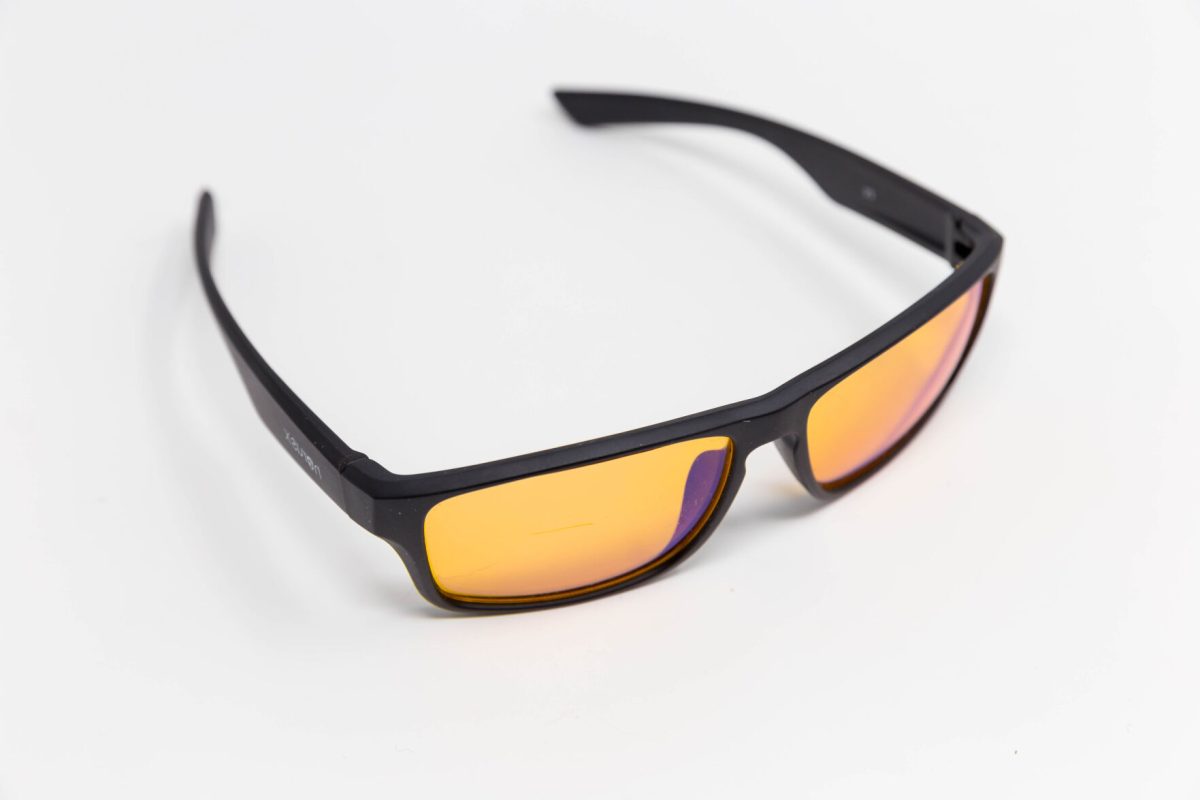In a world where long Zoom calls and relentless Canvas notifications are the new normal, we give little thought to how the blue light from our screens affects our brains. According to a study published by the Journal of International Neuropsychological Society,blue light exposure can disrupt sleep patterns, cause insomnia and affect how fast we process information. However, there is a solution: blue light glasses have been shown to improve memory, sleep patterns and intellectual ability. So, I decided to buy a pair of glasses and create my own $15 experiment; yes, you can try this at home, kids.
As I’m sure you remember from your eighth-grade science class, all visible light has a spectrum of colors, including blue light. Blue light from digital screens hinders our bodies from secreting melatonin, a hormone that promotes sleep. Thus, researchers provided insomnia patients with blue light glasses for two weeks and subjects underwent several tests, including pattern-recognition and memory performance. Those who wore blue light glasses experienced a higher cognitive function and significant improvement in sleep quality.
You might be skeptical: blue light glasses seem like a fad. After all, I’m guilty of giving into the trend, too; however, I wear my own glasses regularly and experience better focus.
Blue light glasses are different from clear glasses because of their tinted lenses. The amber tint allows light to be scattered and deflects up to 42% of the blue light. In comparison to those wearing clear glasses, subjects with blue light glasses performed better on standardized tests and experienced normal sleep patterns. Blue light glasses are more accessible to your average college student than medication, targeted therapy via sleep studies and CPAP machines. The glasses range from $15 to $360; however, as long as the lens has an amber tint, the glasses are proven to yield similar results, no matter the cost. As someone who bought theirs on the cheaper end, I’ve had fewer headache days and better sleep from wearing my blue light glasses.
Now that you’re self-conscious about sitting in front of your laptop screen, here’s the take-away: blue light glasses are just one solution to the surfacing problem of direct blue light emissions. Sure, we encounter blue light with every light source we come into contact with; however, direct blue light exposure, especially at nighttime or before bed, can certainly be harmful to your eyes, mental health and sleep patterns.
Categories:
Are blue light glasses a cure-all?
Bricen Ghent, Tigra Scientifica Writer
March 28, 2021
0
Donate to The Tiger
Your donation will support the student journalists of Clemson University. Your contribution will allow us to purchase equipment and cover our annual website hosting costs.
More to Discover















